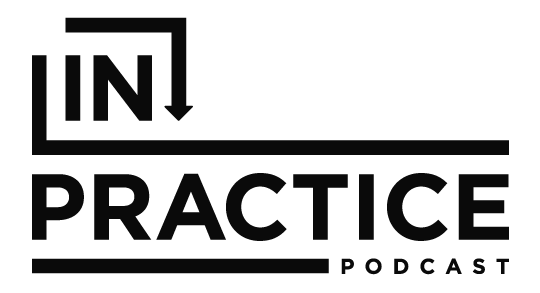S1 E2: THE GREAT UNKNOWN
Guests: Dr. Farha Abbasi, Michigan State University professor of psychiatry and director of the university’s Muslim Mental Health Consortium – Dr. Tian Dayton, former NYU professor of psychodrama and Meadows Senior Fellow – Professor Neil Greenberg, professor of defense mental health at Kings College London and past president of the UK Psychological Trauma Society – Dr. Karestan Koenen, Harvard University T.H. Chan School of Public Health professor of psychiatric epidemiology
What makes one person more or less resilient to traumatic events than someone else? And how are doctors and researchers working to predict a person’s level of risk and resilience before trauma happens?
If the psychological impact of this pandemic has affected you physically, you’re not alone.
Today, we’ll explore the intersection of stress, mental health, and physical health. We’ll take a look back in history to find clues from the aftermath of the 1918 influenza pandemic, and we’ll look forward to see how new discoveries in neuroscience could help heal our minds and bodies in the days to come.
PODCAST TRANSCRIPT
Dr. Farha Abbasi
The hard thing about the COVID-19 pandemic is it’s an ongoing trauma without an end in sight.
David Condos
That’s Dr. Farha Abbasi. She’s a Professor of Psychiatry at Michigan State University and founder of the Muslim Mental Health Consortium. And she says any conversation around mental health resilience should start by looking at the multitude of stressors that affect each individual differently.
Dr. Farha Abbasi
There are just so many multiple layers of trauma happening right now, from financial losses to emotional losses, to heightened relationship issues to racism. So, there is no way your mental health is not gonna be impacted.
David Condos
But the severity of that impact largely depends on the historical, biological and environmental factors that make up a person’s trauma risk profile. It’s like a fingerprint, a unique set of genetic coding, childhood experiences, coping mechanisms and community connections. And it sets the foundation for how our brains are able to adapt when a traumatic season like this pandemic comes along. One factor that has the power to boost everyone’s resilience, no matter the risk profile, is having access to appropriate equitable care. But sadly, Dr. Abbasi says that many key aspects of the American mental health care system were on the brink of faltering even before the pandemic.
Dr. Farha Abbasi
We already have huge unmet need and shrinking resources. And I think this COVID-19 pandemic and the recent events are gonna be the tipping point.
David Condos
One of the clearest ways to view the gravity of this issue is by looking at how many Americans face barriers when it comes to seeking help when and where they need it.
Dr. Farha Abbasi
Like in Michigan, you have 33 counties without a psychiatrist.
David Condos
And Michigan isn’t alone. According to 2017 data from the American Medical Association, 60% of us counties don’t have a single psychiatrist. And for individuals who were already experiencing a mental health condition before COVID-19…
Dr. Farha Abbasi
This is just gonnaquadruple the burden on them.
David Condos
So, having any type of pre-existing mental health diagnosis is one of the biggest factors in determining someone’s trauma risk in this pandemic. But even for people who hadn’t experienced mental health issues previously, Dr. Abbasi says the stress of this time could push them to a breaking point. According to a Pew Research Center survey from May, one third of Americans reported experiencing high levels of psychological distress during the pandemic so far. And that number was even higher, around 50%, for respondents who reported having a poor financial situation or a physical disability that prevented them from participating in activities. And Dr. Abbasi expects some of the people experiencing distress now to feel lasting psychological effects. This could include new cases of PTSD, post-traumatic stress disorder…
Dr. Farha Abbasi
Or what I’m calling post-pandemic stress disorder. On top of all of the challenges, everybody has this anticipatory anxiety going on. Like what the post COVID-19 life or career or finances or relationship… what is the society even gonna look like? We don’t know yet. So unconsciously, consciously your body your mind does not even know what to get ready for.
David Condos
As you heard in the previous episode, PTSD is a mental health condition that can develop after someone experiences a single traumatic event like an assault or a lasting series of traumatic events like living through a period of constant threat or uncertainty. And, sadly, experiencing PTSD is not particularly uncommon. According to the American Psychiatric Association, one out of every 11 people will be diagnosed with PTSD at some point in their life. And like Dr. Abbasi, many of the experts I’ve talked with are concerned about the pandemics potential to fuel post-traumatic stress. But right now, as we’re in the midst of navigating this pandemic, Dr. Tian Dayton says we’re more likely to be experiencing a similar condition called pre-trauma.
Dr. Tian Dayton
Which means that people are experiencing similar symptoms to post-trauma, but in anticipation.
David Condos
Dr. Dayton is a clinical psychologist who specializes in trauma and adverse childhood experiences in New York. She’s a former professor of psychodrama at NYU, who now serves as a senior fellow with The Meadows.
Dr. Tian Dayton
So with anticipatory grief, we’re worrying, we’re grieving, we’re anxious about what could happen. So, we’re grieving what we don’t know yet and what we’ve already lost.
David Condos
She says that the good news is that it’s not too late to heal these pre-trauma symptoms before they develop into PTSD.
Dr. Tian Dayton
If we can get those processed right away, now as they happen, it will go a long way to preventing a lasting trauma that becomes a post-traumatic stress.
David Condos
But of course, that’s dependent on someone’s ability to access appropriate mental health care when they need it. And one big downside of experiencing pre trauma stress in the middle of an ongoing traumatic event is that the event itself is still unfolding in an unpredictable way. Dr. Dayton says that even just feeling uncertainty in our routines can impact our trauma risk. In the world of psychology, this type of routine disruption is described as the weekend phenomenon. Basically, it’s a way to frame how our brains benefit from the inherent structure that comes with a typical weekday.
Dr. Tian Dayton
During the week, that natural anxiety is kind of organized involved, you belong somewhere you know the routine, you know that when your breaks are, you know when your work times are, you know the expectations, they are clear.
David Condos
The routines related to having a job, a home and a community help us organize our thoughts and the way we view the world.
Dr. Tian Dayton
But when the weekends come, our routines are more up to us. They’re not there in the same regulated and regular way.
David Condos
As Dr. Dayton says, the lack of structure isn’t inherently good or bad. But it is disruptive. It puts even more pressure on us to hold things together. And in this pandemic weekend, nobody knows when we’ll get to the next proverbial Monday.
Dr. Tian Dayton
We like to know what to expect. We like the world to feel predictable. We like storylines, we like things with a beginning, a middle and an end. Now, in COVID-19, that is all turned on its head. We don’t know what’s coming next, we can’t predict and we are very uncertain. And that’s anxiety provoking.
David Condos
With all of these factors converging, a looming wave of new mental health diagnoses might seem like a foregone conclusion. But Professor Neil Greenberg doesn’t see it that way.
Professor Neil Greenberg
In fact, I don’t think it tells you any of that at all.
David Condos
Professor Greenberg is a psychiatrist and researcher specializing in trauma in hostile environments. He teaches at Kings College London in the United Kingdom. And he’s also a past president of the UK Psychological Trauma Society.
Professor Neil Greenberg
I think if you take any group of people who are in the middle of a crisis or a difficult situation, that it’s quite adaptive, quite normal to have mental health symptoms. Those symptoms aren’t necessarily indicative that someone’s unwell, and they’re not necessarily indicative that actually people are going to have long-term mental health difficulties as a result of this pandemic.
David Condos
Back in February of 2020, just as COVID-19 was emerging in the Western world, Professor Greenberg and his colleagues at Kings College London decided to take a closer look at this. They wanted to know how a period of forced social separation during this pandemic might affect us. So, they looked at thousands of pieces of research, and ended up reviewing 24 different studies on people who had experienced quarantine during past pandemics. These ranged from a SARS outbreak in Toronto to Ebola spreading through villages of Sierra Leone. After analyzing all that data, they released a new rapid review study about the psychological effects of quarantine. And here’s what they concluded: while having your life disrupted by a pandemic is distressing across the board. If that type of social separation was done well, it didn’t generally leave a lasting psychological impact…
Professor Neil Greenberg
But if it was done badly, and then what was quite surprising for us is, it wasn’t just a cause of short-term frustration and annoyance. Actually, it could cause some long-term mental health problems in terms of depression, and also post-traumatic stress symptoms. And actually, that could go on for months or even years,
David Condos
And Professor Greenberg’s team found a few common threads that seem to determine a person’s risk for experiencing those lasting symptoms.
Professor Neil Greenberg
First of all, people have to understand the rationale for the quality.
David Condos
That understanding requires responsive, clear communication from health experts and government officials. And that unfortunately, has not always been the case during this pandemic.
Professor Neil Greenberg
The second thing is that people needed to feel that their basic needs were met.
David Condos
So, when someone isn’t able to get their food, medicine or other things their family needs, that increases the risk for lasting trauma. And sadly, the economic impact of this pandemic has cast a wide net of financial stress.
Professor Neil Greenberg
If you’ve got a job that involves you driving a taxi or opening the shop, you’re not only losing contact with people, you’re also losing money.
David Condos
And Professor Greenberg says the financial impact and other secondary ramifications of the pandemic could cause even more psychological harm than isolation or anxiety about the virus itself.
Professor Neil Greenberg
As I say, I think the biggest impacts on mental health could be ones that sadly, we already know about, which is, you know, poverty, domestic violence and people who have chronic health disorders that haven’t been treated well because of the crisis.
Dr. Karestan Koenen
From early in my career, I was really interested in the fact that people can experience similar traumatic events, and some people will develop PTSD and other people won’t.
David Condos
Dr. Karestan Koenen is a professor of psychiatric epidemiology. She studies trauma at the Harvard University TH Chan School of Public Health, and you heard from her in the previous episode as well. She spent the past several years studying why people who experienced the same traumatic event, like a natural disaster, go on to experience different levels of lasting trauma. And her research gives her hope about our post-pandemic future.
Dr. Karestan Koenen
When we look at other disasters, the majority people tend to be quite resilient. So, I’m one of the people who said this could be a mental health disaster. But that doesn’t mean it will be and that doesn’t mean there isn’t a lot people are doing individually or communities can do that would prevent long-term adverse mental health impact.
David Condos
But she agrees with Professor Greenberg about the potential for COVID-related financial stress to cause long-term mental health issues.
Dr. Karestan Koenen
M long-term worries in terms of mental health are probably most related to the economic consequences of the pandemic and how long they last I think will really have a big influence on whether people’s current distress turns into more of long-term mental health problems or sort of rebounds and people go back to normal.
David Condos
But external factors like financial stability and social support aren’t the only things influencing our trauma risk. Dr. Koenen and her team at Harvard have also been studying the biological connections between our unique genetic makeup and our risk for trauma.
Dr. Karestan Koenen
So, PTSD is what we call heritable, meaning it’s influenced by our genetic makeup just like in the same way schizophrenia is or major depression is.
David Condos
In one study, she and her team examined the connections between genetics and trauma outcomes for 65 different groups of participants, some of which included up to 100 individuals from all over the world. In analyzing the data from these participants, her team searches for genes that might help predict risk or resilience on a biological level. And it’s somehow even more complex than it sounds.
Dr. Karestan Koenen
One thing we’ve learned about the genetics of PTSD, which is true of the genetics of any mental disorder, is that it’s complicated. And what that means is that there’s no sort of silver bullet, there’s no like one gene or handful of genes that are going to predict who gets PTSD or not. Risk is determined by very small effects of many different genes across the whole genome.
David Condos
A betterunderstanding of genomics and the biology of trauma could help doctors learn which type of treatment is most likely to help someone before they try it. So, trauma treatment would become less of a guessing game. And Dr. Koenen says the potential advancements that could come from this research aren’t limited to pharmaceuticals.
Dr. Karestan Koenen
It could be for behavioral treatment, too. It could be that, you know, people with a certain profile of genetics and environmental factors for certain kinds of trauma would show that those people really benefit best from cognitive behavioral therapy first.
David Condos
But she says don’t expect some kind of trauma risk score with the results of your next ancestry DNA kit. Even as researchers like Dr. Koenen discover new possibilities for trauma treatment, they also make new discoveries about just how complex the brain is.
Dr. Karestan Koenen
What the field would love to be able to do is after a traumatic event be able to predict, you know, have some measure where you could easily predict, “Okay, this person is going to develop PTSD and this person’s not.” And we’re still trying to figure that out.
David Condos
Another risk factor that looms large in this conversation is our personal history. Dr. Tian Dayton from The Meadows has spent the past three decades studying the effects of childhood trauma. In this context, psychologists refer to things like childhood abuse or neglect, as adverse childhood experiences or ACEs. The term originates from a landmark survey conducted by the CDC in Kaiser Permanente. It followed over 17,000 participants for several years beginning in the mid-90s. And its results established some of the first direct links between the amount of trauma experienced in childhood and the severity of physical and mental health issues later in life. Dr. Dayton says the trauma we experienced in childhood, even if we aren’t really aware of those experiences years later, could be triggered by the events of this pandemic.
Dr. Tian Dayton
Think of a building with a beam or a sustaining post that is rotting. That means if the weight gets too heavy in the building, it’s more likely to cave in in a certain area.
David Condos
Dr. Dayton also sees parallels between the trauma of the pandemic and her decades of work with dysfunctional families. She says that living through a series of unexpected, evolving, terrible challenges has some overlap with the experience of a child who grows up around addiction or abuse.
Dr. Tian Dayton
In a home that’s in chaos, it’s unpredictable. You can’t get yourself organized for a particular result, because the result doesn’t really depend on your actions. The result depends on the mood of the parent, right? And this virus has its own mood.
David Condos
And to make matters worse, she also believes that many of the leaders and information sources that we look to during a time like this often aren’t providing the stability we need.
Dr. Tian Dayton
In this case, many leaders are basing the information they’re giving about the disease on what’s best politically. And I’m not saying those aren’t valid concerns. I would say the economy is a concern. But that doesn’t mean we should be misled into thinking things are safe when they aren’t. That’s what the drunk parent does: “No problem here. Don’t worry, we’re fine. I’m speeding? Have fun. I’m a lot of fun What’s wrong with you? Or you’re the one who’s crazy for wearing a mask.” You know, that’s the experience of the child in a home that is living with addiction or trauma or violence or neglect.
David Condos
And that can have lasting results, not just for each of us personally, but also for this family that we call America.
Dr. Tian Dayton
We’re all experiencing collective grief in the country and in the world. However, we’re not experiencing it similarly. Big parts of our country are in denial, big parts of our country are in shock. We’re factioned. And unfortunately, when leaders – the same as with parents – when they choose favorites, whether that goes with the dysfunctional family of a dysfunctional country, then the family or the country splits into factions. And if they can’t communicate, they become embedded factions. And just going back to a family model, those factions can last a lifetime.
David Condos
So, how do we avoid this dire prediction? What are the steps we can take individually and collectively to increase our resilience and come out of the seasons stronger and more connected than before? For Dr. Farha Abbasi of Michigan State, it comes back to a central concept of Islam. It teaches that our individual wellness flows into welfare for others.
Dr. Farha Abbasi
The idea is a healthy individual will have more healthy relationships, and a healthy relationship will lead to healthy families, healthy families will lead to healthy communities and then healthy communities lead to healthy society. So, every act that you do for your wellness is also then connected to an act of welfare.
David Condos
Dr. Abbasi says that when we prioritize the mental health needs of each person, it helps our communities to be more resilient to traumatic events on a broad scale. And she warns that we need to find ways to bring attention to mental health now, even with all the other critical issues happening in the world.
Dr. Farha Abbasi
So, in the end, it comes back to one thing: there are a lot of problems in the society or in the system. But until/unless we bring mental health central – not something you think about later or on the fringes – until/unless we focus on that, we will not be able to have a healthy society.
David Condos
Professor Neil Greenberg from Kings College London agrees. He says the strength of our community bonds will go a long way in determining how we’re able to bounce back from any trauma we experienced now.
Professor Neil Greenberg
Because actually, resilience often doesn’t lie in individuals, it often lies between them.
David Condos
And the more we combat isolation and seek to maintain healthy connections with those around us, the better we can recover.
Professor Neil Greenberg
The biggest single factor, I think, that makes a difference in terms of people’s recovery from traumatic or challenging events, is the ability to actively engage with the recovery process and not to avoid. So, it’s a bit of a cheesy phrase. But avoiding avoidance is really the aim of the game.
David Condos
That could be as simple as reaching out to talk about how you’re feeling with a friend, family member or someone you trust. Or it could mean contacting your health provider, or calling a helpline.
Professor Neil Greenberg
The biggest challenge is that people don’t do any of those things. They kind of close their eyes, they try to not talk about it, or try and bottle it up, say nothing and imagine that it will just go away.
David Condos
But Professor Greenberg says that based on his research and others, that’s not how PTSD works.
Professor Neil Greenberg
What we know is that if trauma is not recovering, within a month, you know, and pretty well recovered by three months, that’s the time that you should be going to seek help.
David Condos
But he says when we come together to support each other’s recovery, that has the power to overcome the factions between us and build our collective resilience for the future.
Professor Neil Greenberg
So, actually, however poorly prepared someone or a nation was, however terrible that situation was during COVID, the thing that is going to make the biggest difference to the mental health of a community going forward is actually that recovery period. And actually making sure that rather than having fractured debates about who was right and who was wrong, the idea is how do we pull together to create some sort of greater good. And I appreciate that sounds all very aspirational. But actually, the evidence is that if you can properly support people afterwards, and you can give them some sort of meaning to what’s happened, rather than just say it was a terrible set of months or weeks. Then actually the psychological outcome can not just be okay. But actually a lot of people can grow as a result. And there’s this concept called post-traumatic growth, which is the fact that anything that doesn’t kill you, makes you stronger. So, many people who have been through some really challenging times, rather than come out of it as a broken individual, may well come out of it as actually someone who can be rightly proud and feel more resilient to adversity in the future.







